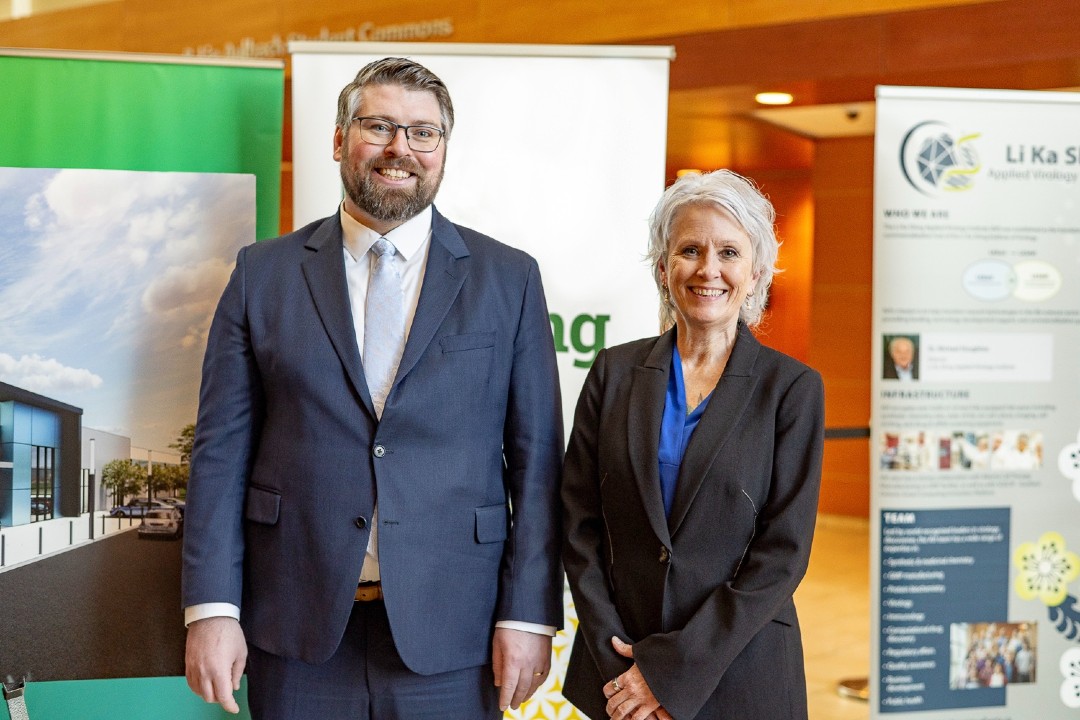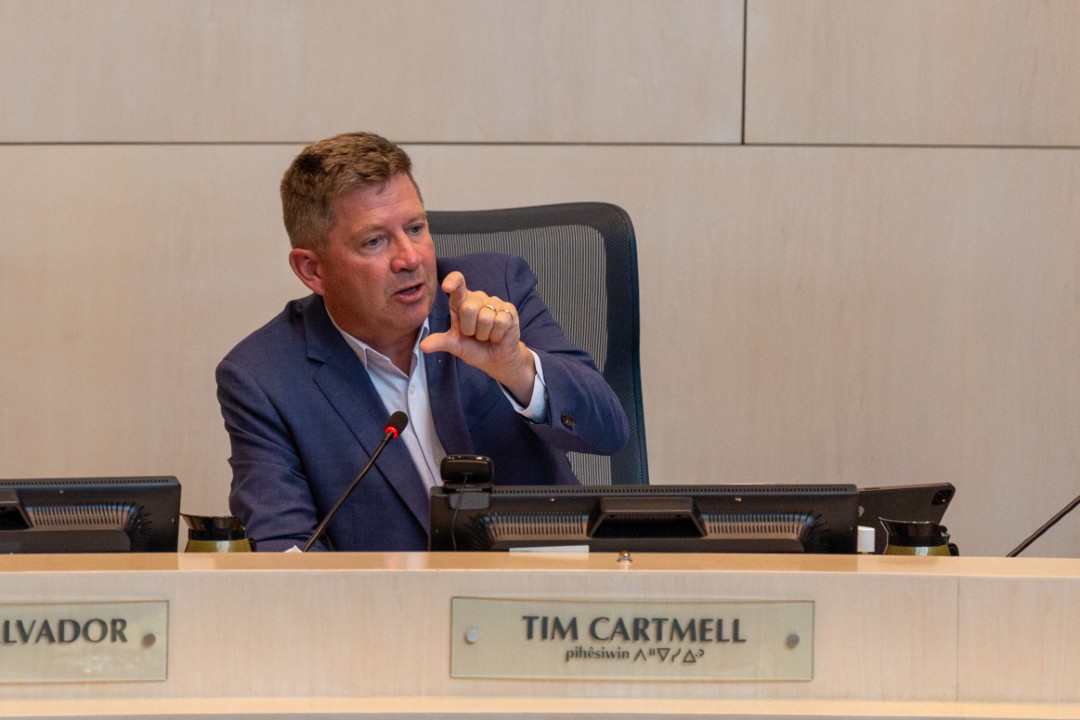
As Edmonton biotech industry booms, Launa Aspeslet steps up to guide further success
Launa Aspeslet has switched from chairing the Applied Pharmaceutical Innovation board to acting as its first-ever chief translational officer, a position she took in May that she said could help companies in Edmonton's flourishing biotech industry find success.
"API is working with companies that are at that very early, exciting stage, and I've always loved working with companies in the early, scrappy stage," Aspeslet told Taproot. "You take risks, and you do what you can to make things work, and you pitch in where you need to pitch in. You do a little bit of everything. I've always loved that environment … At API, I get to do that with a whole bunch of companies, not just one."
Aspeslet is in demand, with three decades of work in biotech under her belt. She's been part of API, a non-profit that helps companies commercialize life sciences innovation, since its earliest days, first as an advisor and then as the board chair. Beyond API, she remains deeply busy within biotech and startups, too, as a member of the board for Edmonton Unlimited (for which she acted as interim CEO between when Catherine Warren was let go until Tom Viinikka was hired), and as the chief operating officer for Ontario-based Cell Technologies, Inc. Previously she was the chief operating officer of Isotechnika Pharma Inc., which merged into Aurinia Pharmaceuticals Inc. in 2013, as well as Hepion Pharmaceuticals.
Her new position is about helping companies translate an idea into something that not only works in the market but makes it there in the first place.
"'Translation' means taking a product from bench to bedside," Aspeslet said. "It's taking it from the very early stages, of when it's an idea, all the way through to the development of that product. (Translation is) going through the necessary hoops to get all the data collected and then to get it to market."
Part of that, Aspeslet said, is regulations from Health Canada and the United States Food and Drug Administration. These can stand in the way of drugs, natural health products, and medical devices, she said, but translation can potentially help.
"The innovators that come up with the ideas know what is needed in the market, they know what they need to make, how it should work, and how the operators should use it," she said. "They don't necessarily have a good understanding of regulatory requirements."
Aspeslet said a translational role is needed in Edmonton now more than ever because biotech is gaining momentum. The numbers underline her point: Diplomat Consulting credited API with generating $500 million in spinoff company valuation as of 2023, five years after the organization launched in 2018. Edmonton Global has further calculated the value of the local life sciences industry, noting that the Edmonton Protocol for diabetes treatment, developed 25 years ago at the University of Alberta, constitutes "Canada's largest biotech licensing deal," at $1.1 billion.
"Life sciences is really starting to take off here, and we're starting to see a lot more companies and entrepreneurs start here," Aspeslet said. "It's not that we haven't always had the great talent and the brilliant ideas here, but I think now, we're growing that critical mass that we can really take grasp of."







